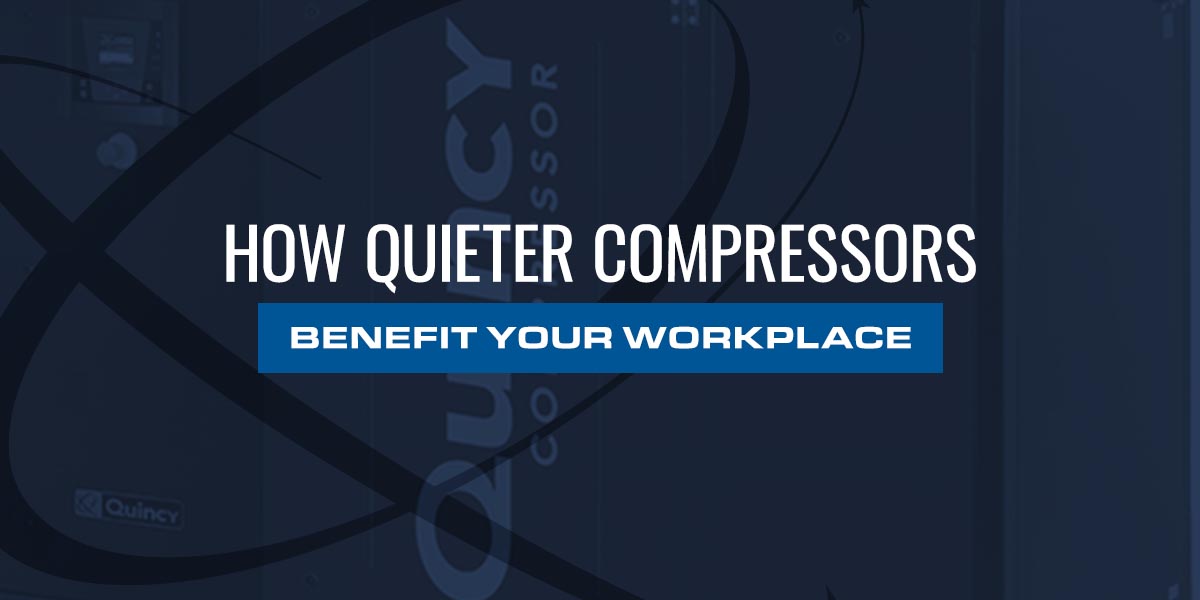
The modern workplace is full of noise. Whether you’re in a machine shop or office environment, loud sounds are everywhere, generated by a variety of machines that allow you the opportunity to carry out your work.
While some loud sounds are unavoidable at work, many can be prevented through the use of noise reduction equipment and investing in quieter machines. It is important to reduce occupational noise as much as possible, as prolonged exposure to it can have a drastic effect on your employees’ health and safety.
Let’s take a look at a couple of reasons why you should try to reduce occupational noise in your workplace.
Why It’s Important to Reduce Workplace Noise
A loud workplace is detrimental to you and your workers in more ways than one. Below are some of the main reasons to reduce workplace noise.
Loud Occupational Noise Accelerates Hearing Loss
There are a couple of mechanisms by which loud noise can bring about hearing loss. Exceptionally loud noise can alter your inner ear structure and cause tinnitus, a condition that is best described as a ringing between the ears. Should your employees experience hearing loss, their ability to heed warnings from co-workers and plant machinery can be diminished, increasing the risk of injury.
OSHA estimates that every year $242 million is spent on workers’ compensation claims for hearing loss incurred at the workplace. Save your company time, money and possible litigation — do what you can to reduce noise in the workplace and protect your staff from hearing loss.
Contact Us Learn More Find a Dealer Near You
Other Health Ramifications Related to Occupational Noise
A noisy work environment isn’t just dangerous to your employees’ ears. It can also have other devastating effects on their health. Many studies have identified a link between occupational noise and hypertension, a serious medical condition that can lead to heart issues and strokes. Occupational noise is also believed to be linked with other disorders including sleep deprivation and behavioral issues.
Protect your employees’ health — invest in equipment that offers quiet operation and provide your staff with noise reduction equipment.
Loud Occupational Noise Increases the Risk of Injury and Equipment Damage
If your employees work in an environment where noise obstructs their ability to communicate, you’re putting them at risk for harm and jeopardizing the integrity of your company’s equipment. One missed auditory signal could be the difference between a successfully completed project and a major injury. Don’t put your employees in a situation they could be hurt. Take steps to reduce occupational noise in your workplace.
Why Are Air Compressors So Loud?
When it comes to air compressors, powerful machines tend to grow louder as the years go on. Thankfully, there are cost-effective air compressor options and solutions that allow you to protect the hearing of your employees. Certain options like soundproofing air compressors allow you to use the same powerful machinery you’ve already invested in.
The main reason that air compressors are so loud is because of their vibrations, intake noise and exhaust noise. Since all of these loud noises are happening alongside each other, they can easily push the decibel of your air compressor up into an unsafe range. The main reasons for loud air compressors include:
- Vibrations: While the vibrations caused by air compressors don’t make much noise in themselves, the location of your air compressor and the equipment that houses it may lead to potentially dangerous sound levels. Air compressors with lots of hollow and shallow parts make the most vibration noises, and those are amplified when the machine is placed on uneven ground that makes the machine shake more. You can combat the sound of vibrations with insulation.
- Air compressor placement: While you may not be able to control the decibel of the vibrations from your air compressor, your can move your air compressor to a location where the ground is more secure and produces less noise. Placing air compressors on materials like concrete and hardwood will amplify the sound of the vibrations, producing echoes. Solutions like rubber mats or other soft padding can greatly reduce the sound of your air compressor.
- The type and material of air compressor: Louder air compressors require more power and, therefore, more noise. The larger the size or the thinner the material of your air compressor, the more noise it’s going to make. When it comes to buying large air compressors, it makes sense to invest in the best quality air compressor possible. While the sound of smaller air compressors can be minimized with rubber mats, large compressors are harder to muffle. Certain companies also produce air compressors that are designed to be quiet.
What to Do if Your Air Compressor Is Getting Loud
When your air compressor gets loud, there are several steps you can take to minimize the decibels in your workplace. If you can’t minimize the sound of your air compressor, it’s time to consider the following actions.
Consider Getting a Noise Assessment
If you’re concerned about the noise level of your workplace, consider conducting a noise assessment. You may be surprised to find how much excess noise your machines generate. A noise assessment is a unique opportunity for you to gauge the efficiency of your work environment to determine what needs to be upgraded.
Upgrade Your Equipment
Today, more and more companies are designing innovative air compressor equipment that keeps your workplace quieter and protects your hearing. Quiet air compressors do exist, and they’re probably more cost-effective than you previously thought. An investment in upgraded equipment will cost you less money in the long run by increasing efficiency and productivity while decreasing air compressor noise. No matter how large of an air compressor you need, solutions are available for preventing and eliminating excess compressor noise.
The Best Quiet Air Compressors Available
A wide variety of silent compressors can help organizations protect their staff and prevent occupational accidents. Quiet air compressors help prevent danger in the short term and promote long-term health and wellness for your team and organization.
Q13160VQ — Single Stage
The single-stage Quincy air compressor has a wide variety of features to benefit your organization, including:
- PSI: The single-stage Quincy air compressor can output 12.8 CFM at 90 PSI and 14.6 CFM at 40 PSI. The compressor’s RPM allows it to operate at a quiet volume.
- Material: The aluminum head on the air compressor allows it to function at unusually low temperatures.
- Capacity: This compressor features a 60-gallon capacity with an easy-to-read gauge and ASME safety valves.
Q12126VPQ — Single Stage
This single-stage air compressor model is a portable solution with a suite of features, including:
- PSI: This unit can produce 8.3 CFM at 40 PSI and 7.4 CFM at 90 PSI.
- Material: The portable single-stage compressor comes with a lubricated cast iron pump that provides the user with 10,000 hours of useful pump life. There’s also an electric alternative model with a low RPM for added outstandingly quiet operation.
- Capacity: The compressor also features 26 gallons of capacity.
QGS Line — Rotary Screw
The QGS Quincy air compressor series offers many benefits for users, including:
- Performance: This series of air compressors has advanced rotary screw technology for maximized air compressor performance.
- Useful life: The QGS also has a long useful life, with 8,000 hours of lubricant resulting from low oil carryover.
- Parts: The QGS comes with the highest-quality components, including a high-efficiency intake filler and V-belt drive.
QGD Line — Rotary Screw
The Quincy QGD line is another part of the rotary screw compressor lineup with several advantages, including:
- Energy flow: The energy flow of this unit series is world class at 100-125-150 PSIG.
- Network: This line of compressors can also network up to six machines for your largest air compression projects.
Electric Air Compressor
Quincy electric air compressors provide several unique features that can benefit your organization:
- Environment: These electric models can operate in an indoor environment without specialized ventilation because the units are quiet and fume-free.
- Portability: These air compressors have multiple portable options, making it easy to transport them across project sites.
QV 1.5-10 HP Drive Drive Rotary Vane Vacuum Pump
Quincy CV series vacuum pumps have many benefits that can help your company:
- Horsepower: The Quincy CV series of vacuum pumps ranges from 1.5 HP to 10 HP in numerous compact designs.
- Features: These vacuum pumps also have an inlet screen and air cooling.
- Useful life: Nonmetallic vanes allow the vacuum pumps to have an extended life span with easy mobility.
How Quincy Compressors Can Help Reduce Noise in the Workplace
Quincy Compressor produces industry-leading compressor solutions for a wide variety of professional applications. We manufacture reliable products backed by extensive warranties. Our compressors strike a balance between high output capacity and quiet operation — Quincy’s new QGD and QGDV units produce three decibels less noise compared to similar machines.
Contact us today to learn how our products can help you reduce occupational noise in your workplace and protect your employees’ safety and health.
Last Updated on October 11, 2022 at 12:20 pm

